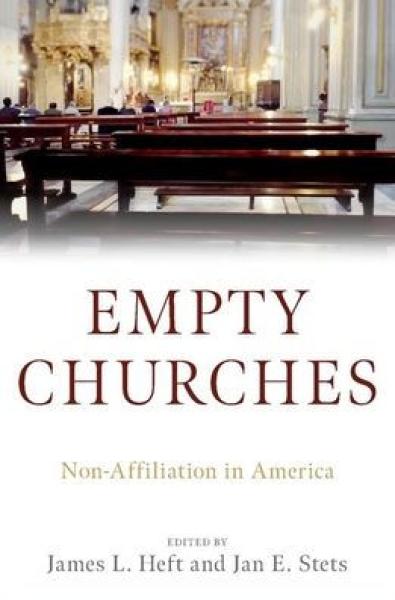Description
The scholars in this volume explore the phenomenon by drawing from each other's work to understand better the multi-faceted nature of non-affiliation today. They explore the complex impact that non-affiliation has on individuals and the wider society, and what the future looks like for religion in America. The book also features insightful perspectives from parents of young adults and interviews with pastors struggling with this issue who address how we might address this trend. Empty Churches provides a rich and thoughtful analysis on non- affiliation in American society from multiple scholarly perspectives. The increasing growth of non-affiliation threatens the vitality and long-term stability of religious institutions, and this book offers guidance on maintaining the commitment and community at the heart of these institutions.
"Born out of the view that social phenomena are best studied through the lens of different disciplinary perspectives, this book brings together leading scholars in the fields of sociology, developmental psychology, gerontology, political science, history, philosophy, and pastoral theology to study the growing number of individuals who no longer affiliate with a religion tradition. The scholars not only explore this phenomenon from their respective academic disciplines, but they also turn to each other's work to understand better the multi-faceted nature of non-affiliation today. The data gathered shows that it is best not to use the common expression "Nones" to describe non-affiliates because many of them still believe though they may not belong. The scholars explore the complex impact that non-affiliation has on individuals and the wider society, and what the future looks like for religion in America. Later in the book, there are insightful perspectives from professionals in the field who address how we might address non-affiliation, particularly among young adults. In general, this book provides a rich and thoughtful analysis on non-affiliation in American society from multiple scholarly perspectives. The increasing upward trend in non-affiliation threatens the vitality and long-term stability of religious institutions. Both the opening and closing pages of the book remind the reader that at the heart of religious affiliation is commitment and community, which may be the essence of maintaining these religious institutions"--
Product Details
- Oxford University Press, Brand
- Feb 8, 2021 Pub Date:
- 0197529321 ISBN-10:
- 9780197529324 ISBN-13:
- 384 Pages
- 9.1 in * 6.1 in * 1.1 in Dimensions:
- 1 lb Weight:




